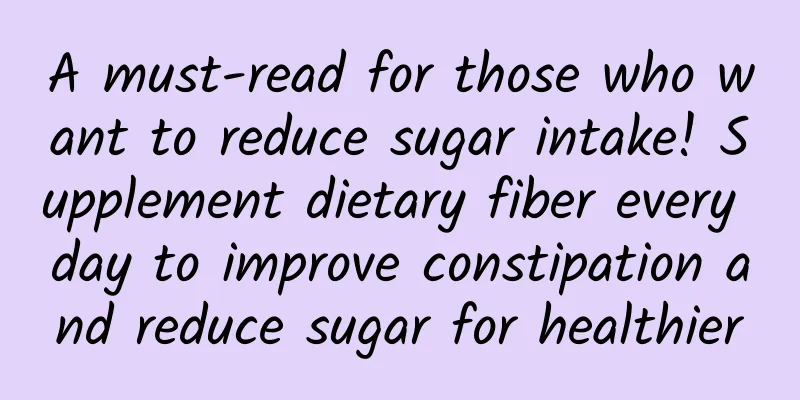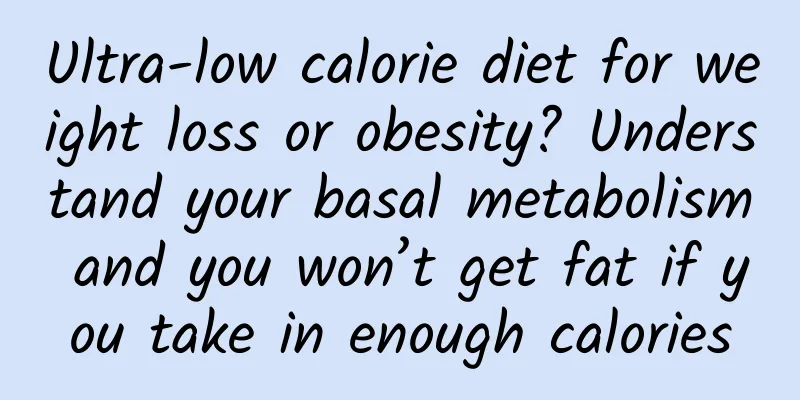A must-read for those who want to reduce sugar intake! Supplement dietary fiber every day to improve constipation and reduce sugar for healthier

|
The sugar-reducing diet is one of the most popular diets in recent years. It can achieve the effect of body shape control and blood sugar control by reducing carbohydrates! However, people who are reducing their sugar intake may avoid whole grains and fruits in order to reduce carbohydrates. In some sugar reduction communities, it is common to see netizens sharing sugar-reducing meal plates that are close to ketosis. Some netizens’ plates don’t even contain any vegetables! This kind of eating pattern will make dietary fiber even more insufficient and affect the ecology of the digestive tract flora. In addition to possibly hindering weight loss results, it will also make constipation more serious! Therefore, this time the nutritionist launched an experience activity, allowing participants to experience a correct, burden-free, and bowel-free sugar-reducing diet through the nutritionist's sugar-reducing suggestions and 2 packets of dietary fiber powder every day (each packet contains about 6 grams of dietary fiber, composed of chicory fiber inulin, indigestible maltodextrin, and milk peptide peptone). Sugar-reducing people supplement dietary fiber to reduce constipation Past studies and reports have pointed out that a sugar-reducing or ketogenic diet may cause constipation due to a lack of dietary fiber. Therefore, this experience camp focuses more on defecation-related issues, allowing participants to reduce the problem of constipation during the sugar-reducing diet! Before the experience camp began, 25.9% of people said they had a bowel movement once every 3 days, while those who had a bowel movement once every 4-6 days and once every 7 days or more were 7.4% and 3.7% respectively. Based on the broad definition of constipation, approximately 40% of people suffer from constipation. After two weeks of sugar reduction and dietary fiber supplementation, the proportion of people who had bowel movements once every 7 days dropped to 0%, the proportion of people who had bowel movements once every 3 days dropped from 25.9% to 7.4%, and the proportion of people who had bowel movements once every 2 days increased from 25.9% to 40.7%. Moreover, the proportion of people who defecate 2-3 times a day increased from 3.7% to 22.2%, a 6-fold increase. These data show that supplementing with dietary fiber can indeed help improve bowel movements. Sugar-reducing people supplemented with dietary fiber, and nearly 70% of participants saw a decrease in waist circumference In addition to improving bowel movement problems, there were 27 complete participants in the two-week sugar reduction experience. The nutritionist provided dietary recommendations for three meals a day and a weekly summary analysis, as well as sugar reduction suggestions and menus to help participants achieve the sugar reduction recommendations regardless of eating out or cooking at home. After two weeks of reducing sugar intake, nearly 70% of the participants had a decrease in waist circumference, and the average weight loss was 1 kg in about 2 weeks. Participants who had previously implemented a sugar-reducing diet said that this time the effect of supplementing dietary fiber was better than in the past. Dietary fiber can be divided into water-soluble and water-insoluble. The dietary fiber powder supplemented in this experience camp is composed of two dietary fiber raw materials (indigestible maltodextrin and chicory fiber). These two types of dietary fiber are water-soluble dietary fiber, which can absorb water in the digestive tract, soften feces and facilitate excretion. People who reduce sugar intake may consume relatively less grains and fruits, so their intake of water-soluble dietary fiber may be insufficient. Therefore, they can supplement dietary fiber to absorb water and aid bowel movements. Dietary fiber can promote the growth of intestinal probiotics and help peristalsis In addition to absorbing water and providing a feeling of fullness, dietary fiber can also be used by the probiotics in the digestive tract as "prebiotics" or "prebiotics" (food for probiotics), thereby increasing the number of probiotics in the digestive tract! In addition, after being fermented by probiotics, water-soluble dietary fiber will also produce short-chain acidic substances to stimulate intestinal peristalsis, accelerating the excretion of feces accumulated in the intestines! Nutritionist's advice: Supplement dietary fiber powder to make up for the lack of vegetable intake At present, the daily dietary fiber intake of our people is about 14-15 grams, which is still far from the recommended amount of 25-35 grams. This is one of the reasons for the current high prevalence of constipation. However, a sugar-reduced diet may avoid fruits and whole grains, making dietary fiber deficiency worse. Therefore, nutritionists recommend that the general population should consume enough fruits and vegetables and choose unrefined whole grains. People who are trying to reduce their sugar intake should not worry too much about carbohydrates. They should consume enough vegetables and some fruits in moderation! In addition to these dietary improvements, you can also supplement with dietary fiber powder, and prioritize health food certifications such as improving gastrointestinal function and regulating blood lipids, so that we can maintain good intestinal health and bowel movements while reducing sugar! This article is from "Good Food Class" by nutritionist Lin Shihang |
Recommend
Why do unmarried women also suffer from adnexitis?
It is generally believed that women will not suff...
Common symptoms of adnexitis
Adnexitis is also a common gynecological disease....
Which hospital is good for menopause?
Which hospital is good at treating menopause? Thi...
Can taking stomach medicine cause amenorrhea?
Amenorrhea, the cessation of menstruation, is usu...
Introduce the specific manifestations of clinical symptoms of dysmenorrhea
I believe that many people are concerned about th...
How to adjust your diet when you have pelvic peritonitis
It is not terrible to suffer from pelvic peritoni...
The key to weight loss: blood sugar, enzymes, and dietary fiber are all essential!
Most weight loss failures are closely related to ...
Overeating ruins weight loss efforts! Chestnuts increase satiety
When the autumn wind blows, chestnuts are in abun...
What are the hazards of having sex after abortion? Five aspects of nursing care should be done after abortion
Many young people do not pay attention to their p...
So eating like this is bad for your brain? ! Get rid of these 6 bad habits! How many of these brain-damaging eating habits do you have?
So eating like this is bad for your brain? ! Say ...
The occurrence of pelvic inflammatory disease has an impact on women in all aspects
Pelvic inflammatory disease is a female gynecolog...
What complications may occur after abortion? How to deal with them?
Do you know that artificial abortion, also known ...
Points to note for patients with ectopic pregnancy in daily life
What are the things that patients with ectopic pr...
If you cut fruits and put them in the refrigerator, will half of the nutrients be lost? Can fruits be put in the refrigerator? Nutritionist to answer
Office workers like to eat fruits, but they are v...
Why do women experience dysmenorrhea during their menstrual period?
In clinical medical research, dysmenorrhea is a m...









